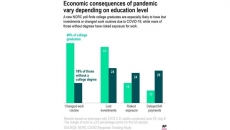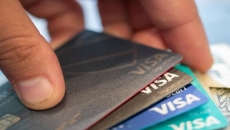In general, using as little of your credit card limits as possible is better for your score. So logic would suggest that paying off your credit cards early so that a zero balance is reported to the credit bureaus would produce the highest scores, right?
Turns out, having 1% of your credit limits in use may help your credit score even more than showing 0% usage. Counterintuitive as it is, that’s how credit scoring works.
WHY 1% IS BETTER THAN 0%
Credit scoring systems are designed to predict how likely you are to repay borrowed money. The two biggest factors — accounting for about two-thirds of your credit score — are paying on time and the amount you owe.
Credit utilization, or the percentage of your credit card limits you use, is one of the biggest levers you can pull to affect your score, and it works quickly: Your utilization changes as soon as card issuers report your new balances to the credit bureaus each month.
If you are trying to squeeze every possible point from credit utilization, the trick is to aim low — just above zero. Credit expert John Ulzheimer says that data has shown that 1% credit utilization predicts slightly less risk than 0%, and scoring models reflect that.
Tommy Lee, principal scientist at FICO, one of the two dominant credit scores, explains it this way: “Having a low utilization indicates you are using credit in a responsible manner.”
HOW TO SHOOT FOR 1%
If you’re aiming for a perfect 850, or are close to qualifying for a lower interest rate on a loan, shooting for 1% might help you gain a few points. You could aim to zero out your credit cards, knowing that your regular use of the cards will keep some small percentage of your limit in use.
Ulzheimer, who has worked for credit bureau Equifax and credit scoring company FICO, explains how: “If you can pay off your balance in full by the statement closing date, then you’ll get a statement with a zero balance and that’s what will appear on your credit reports.” Or, you can pay off a card in full by the due date and stop using the card entirely for the next billing cycle to get to a zero balance.
“But 1% could be better if you can pull it off,” Ulzheimer says.
You could do that by using the AZEO (all zeros except one) strategy to get every credit card but one to a zero balance. Because credit utilization is calculated both overall and per card, you may want to use your highest-limit card as the one that will have a statement balance. Simply add all your credit limits together, and figure 1% of that.
You can also try paying online as soon as a transaction posts to keep the balance low. Or, use a personal finance website or your card issuer website to check your credit utilization weekly. Then make a payment to bring it down, rather than waiting for your monthly statement.
WHAT IF I CAN’T MAKE IT TO 1%?
Keeping utilization under 10% is another worthy goal. Lee says that the top 25% of FICO credit scorers use about 7% of their credit limits. If you pay on time and keep balances low relative to credit limits, your scores will generally be high.
Ulzheimer points out that if you are fretting over whether you want a credit utilization of 1% or 0%, it’s worth noting that either is excellent. And it’s entirely possible to score a perfect 850 without the elusive 1%. How that works is part of the “secret sauce” that scoring companies do not reveal.
HOW TO GET AND KEEP A HIGH SCORE
Nothing is more important to your score than paying bills on time. The scoring penalty for a missed payment is severe, and a payment that’s 30 or more days late can stay on your credit report for up to seven years.
Also, use cards lightly and keep balances low to keep your credit utilization low.
In addition, keep an eye on the other factors affecting your credit score:
— Check your credit reports for errors (you can access them at www.annualcreditreport.com ).
— Keep credit card accounts open.
— Aim to space credit applications about six months apart.
— Use both installment credit (loans with level monthly payments) and credit cards.
And monitor your credit — regular checkups are part of staying financially healthy.






